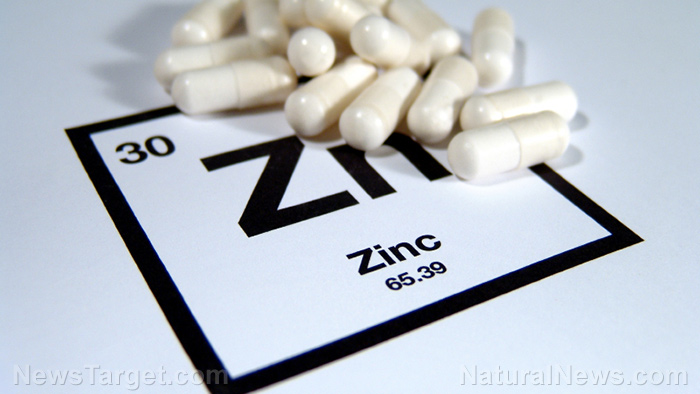Regular intake of dietary zinc helps fight pneumonia, reveals study
09/03/2020 / By Divina Ramirez

Zinc has long been studied for its beneficial effects on immune health. On top of regulating immune function, zinc also aids in fighting infectious diseases like the flu and pneumonia. But the mechanisms behind these effects had eluded scientists in the past.
Recent research published in the journal PLOS Pathogens demonstrated just that. The research team, comprised of scientists from universities across Australia, found that zinc status dictated the outcome of Streptococcus pneumoniae infection in mice.
Their results also indicated that zinc has a role in the antimicrobial response of the immune system. The researchers noted that their findings highlight the importance of adequate zinc intake in both minimizing the risk and controlling the spread of pneumonia.
The therapeutic role of zinc in the treatment of pneumonia
Bart Eijkelkamp, a post-doctoral researcher in the Research Centre for Infectious Diseases (RCID) at the University of Adelaide, explained that their research demonstrated that zinc helps specific immune cells kill S. pneumoniae, the most common cause of bacterial pneumonia in children.
It is thought that zinc intake is linked to immune function and resistance to bacterial infection, but the mechanisms and relationships underpinning these links had remained unclear prior to their research, added Eijkelkamp.
Using state-of-the-art imaging techniques and a mouse model of pneumonia, Eijkelkamp and his team found that inadequate zinc status compromised immune defense in infected mice. In fact, a lack of zinc promoted the proliferation of infectious bacteria.
Furthermore, the researchers found that mice that had inadequate zinc intake succumbed to their infections up to three times faster than those that had adequate intakes. These results demonstrated that zinc influences the immune system’s antimicrobial control in the lungs.
Based on these findings, the researchers concluded that zinc status affects the impact of pneumonia. The findings also established that zinc is a component of antimicrobial defenses. (Related: Research points to quercetin, zinc as natural coronavirus cures.)
Zinc protects older adults from pneumonia
Pneumonia affects millions of adults around the globe. But it does tend to be more debilitating in populations more susceptible to infection and disease in the first place, such as children and older adults.
Some common risk factors for pneumonia include asthma, smoking, indoor air pollution and a compromised immune system. But studies find that zinc status can also heighten one’s risk of contracting a pneumococcal infection.
In a 2010 article published in the journal Nutrition Revolution, a team of American researchers found that zinc deficiency in the elderly, a common nutritional deficiency among this age group, impairs immune function, compromises resistance to pathogens and prolongs the duration of pneumonia.
The researchers thus concluded that older adults deficient in serum zinc concentrations might benefit from zinc supplementation. This measure might help reduce the duration of pneumonia and slash pneumonia-associated deaths in older adults, the team added.
Zinc supplementation for protection against pediatric pneumonia
Existing studies on pneumonia in children or pediatric pneumonia suggest that zinc supplementation can also help treat the disease and minimize the risk of contracting it in the future among children.
For instance, an international team of researchers studied randomized controlled trials (RCTs) on zinc supplementation for the prevention of pneumonia in children no older than 59 months.
The team found that zinc supplementation led to a 13 percent reduction in the incidence of pneumonia and a 41 percent reduction in the prevalence of the disease among the age group involved. Their findings appeared online in the Cochrane Database of Systematic Reviews.
In 2017, a pair of researchers from the BC Children’s Hospital Research Institute in Canada also recommended zinc supplementation in children younger than five years to reduce their risk of contracting pneumonia.
Taken together, these studies underscore the role of adequate zinc intake in minimizing pneumonia risk across different age groups.
Read more articles about the health benefits of zinc at Nutrients.news.
Sources include:
Tagged Under: #nutrition, biomedical research, children's health, immune health, immune system, micronutrients, nutrients, pneumonia prevention, prevention, supplements, vitamins, zinc




















